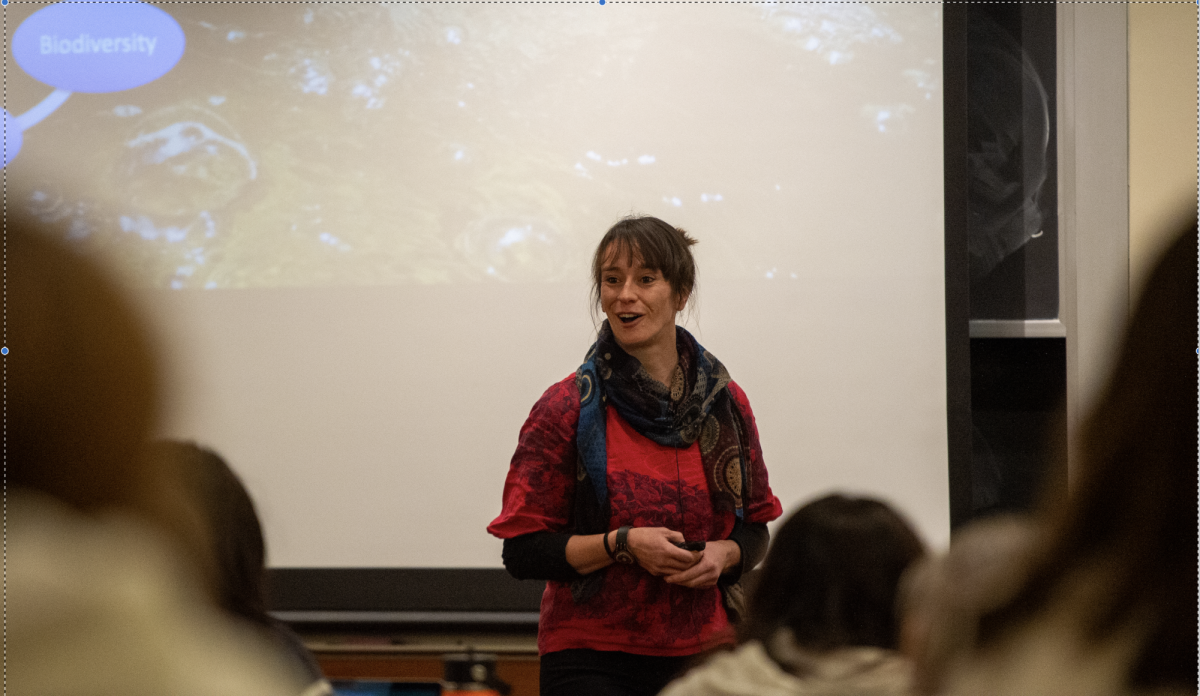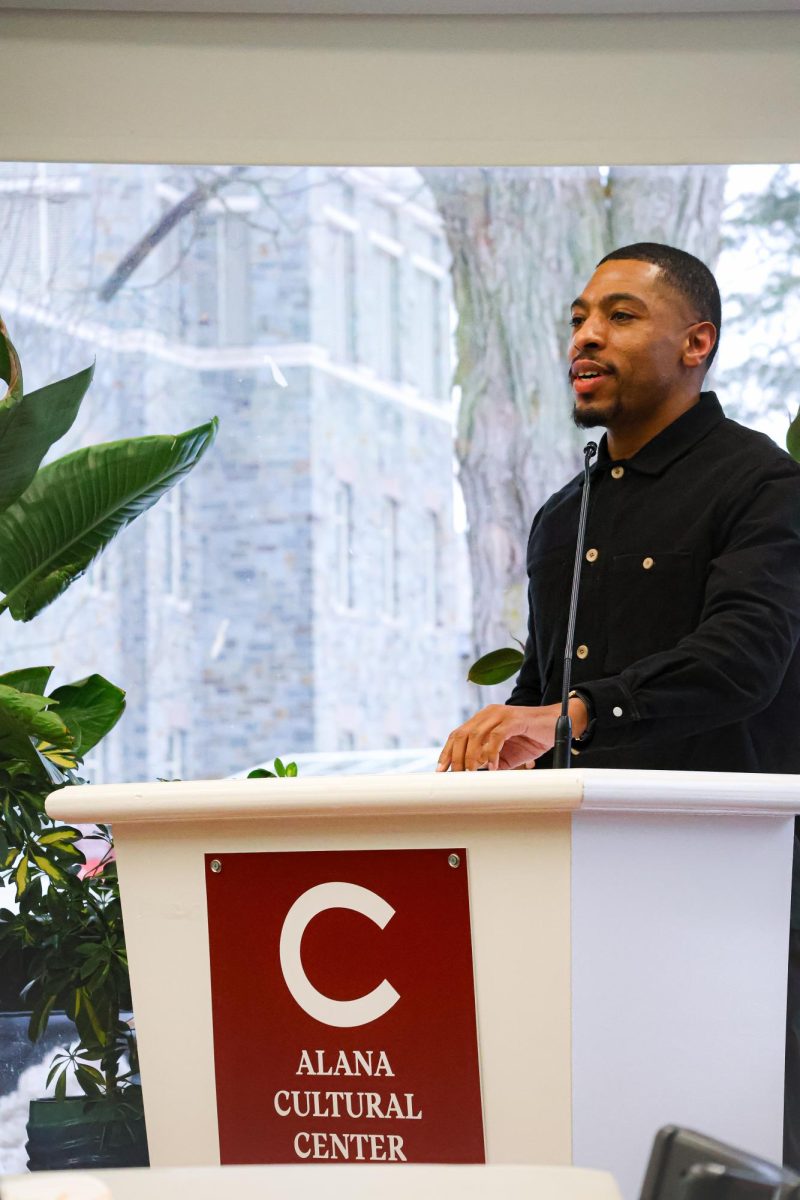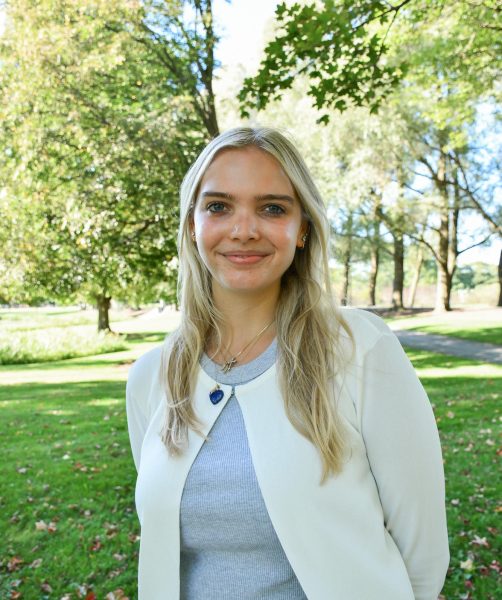As part of its NASC Colloquium, the Division of Natural Sciences and Mathematics hosted “Dung Matters: A Story About Hippos, Humans, and Bugs in a Kenyan River” on Friday, Oct. 13. Assistant Professor of Biology Therese Frauendorf led the lecture.
Frauendorf presented her ongoing research on the effects of hippo dung on the aquatic systems of the Mara River in Kenya, known for its significant number of large animal crossings and its abundant hippo population. Her research is specifically interested in how dung plays a role in food webs, including energy flow and production.
On her website, Fraudendorf outlines the importance of her research and its ties to the effects of climate change.
“With global declines in megafauna, the magnitude of animal subsidies into freshwater systems decline as well,” Frauendorf wrote. “Therefore, it is important to understand how the magnitude of animal subsidies affects aquatic food webs.”
During the lecture, Frauendorf explained that analyzing changes in the river revealed information about communities both inside and out of it.
“What’s happening inside the river does not only affect what is in the river itself, but also outside terrestrial communities,” Frauendorf said.
Fraeundorf presented images and data from her own fieldwork in the Mara River where she and a research team collected algal and macroinvertebrate data. She also presented findings from her research conducted at the University of Florida. During her time there, Fraeundorf and her colleagues constructed mini river ecosystems to try to mirror that of the Mara River in order to understand how different variables affect the systems.
Sophomore Caroline Goldie enjoyed the lecture and explained how she was able to see concepts from her biology class applied and expanded to a specific, real-world scenario.
“I actually thought it was super interesting to see this study that goes beyond what I’ve been learning about in class,” Goldie said. “I was really excited to learn about how these small changes we don’t really think about with hippos really impact the greater ecosystem of these rivers.”
Junior Lydia Woodworth also attended the lecture and found the presentation to be informative and thought-provoking.
“I thought it was really interesting and engaging. It was definitely something that I haven’t learned much about just because I’m not in a lot of natural science classes,” Woodworth said. “So it was a good variety of topics. I feel like I’m often hearing about climate change and different things in the natural sciences, and this one was more specific on a topic I haven’t heard much about.”
Since finishing her research on hippos, Fraeundorf is currently furthering her work by studying gut contents in invertebrates.
















